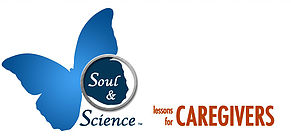WEB MATERIALS

Web Articles
Charles L. Loprinzi et al. “Compassionate Honesty” Journal of Palliative Medicine. Volume 13, Number 10, 2010
Efharis Panagopoulou, Gesthimani Mintziori, Anthony Montgomery, Dorothea Kapoukranidou, and Alexis Benos “Concealment of Information in Clinical Practice: Is Lying Less Stressful Than Telling the Truth?”Journal of Clinical Oncology 2008 26:7, 1175-1177
Robert A. Buckman “Breaking Bad News: the S-P-I-K-E-S Strategy” Community Oncology. March/April 2005
De Sousa, Fernando Henrique et al. “The Use Of Spikes Protocol In Cancer: An Integrative Review.” International Archives of Medicine, [S.l.], v. 10, mar. 2017. ISSN 1755-7682.
Walter F. Bailea et al. “SPIKES—A Six-Step Protocol for Delivering Bad News: Application to the Patient with Cancer” The Oncologist August 2000 vol. 5 no. 4 302-311 doi: 10.1634/theoncologist.5-4-302
Ajaj A, Singh M P, Abdulla A J J. “Should Elderly Patients Be Told They Have Cancer? Questionnaire Survey of Older People” BMJ 2001; 323 :1160
Jamie H. Von Roenn and Charles F. von Gunten “Setting Goals to Maintain Hope” Journal of Clinical Oncology 2003 21:3, 570-574 (for purchase)
Stephanie J. Arnold and Bogda Koczwara “Breaking Bad News: Learning Through Experience” Journal of Clinical Oncology 2006 24:31, 5098-5100
Anthony L. Back and Robert M. Arnold “Discussing Prognosis: “How Much Do You Want to Know?” Talking to Patients Who Are Prepared for Explicit Information” Journal of Clinical Oncology 2006 24:25, 4209-4213
Porensky, Emily, “Breaking Bad News: Effect Of Physician Communication On Analog Patients’ Response” (2010). All Theses and Dissertations (ETDs). 279. http://openscholarship.wustl.edu/etd/279
Jennifer W. Mack and Holcombe E. Grier, “The Day One Talk.” Journal of Clinical Oncology 2004 22:3, 563-566
Websites
Pallimed
About Pallimed (from website description):
Pallimed was founded on June 8th, 2005 by Drew Rosielle, MD as a way to keep track of interesting articles from many different journals that were relevant to palliative care. The scope of the blog has expanded to include reviewing media coverage of hospice and palliative care issues.
The contributors to Pallimed are mostly physicians, but we also have a nurse practioner and a PhD on staff. Speaking of staff, Pallimed is an all volunteer effort. No grant money, no organizational support, no advertisements. We do this is our spare time for the love of the field.
Our primary audience are the interdisciplinary health care professionals in hospice and palliative care, but we are happy to see patients, families, media, other disciplines and specialties come here to find information relevant to them.
American Academy on Communication in Healthcare (AACH)
AACH is the professional home for all those who are committed to improving communication and relationships in healthcare.
AACH accomplishes this through:
- Welcoming researchers, educators, clinicians, patients, patient advocates, and all members of the healthcare team.
- Providing opportunities for collaboration, support and personal and professional development.
- Identifying strengths, resources and needs of patients, their family members and healthcare professionals, both as unique individuals and in relationship to one another.
- Developing skills that integrate biological, psychological and social domains.
- Applying existing scholarship from multiple disciplines and developing new knowledge through research.
- Promoting collaborative relationships between clinicians and patients, teachers and learners, and all members of the health care team.
- Incorporating core values of respect, empathy and genuineness in human relationships and the importance of self-awareness in all activities.
The Institute for Healthcare Improvement (IHI)
The Institute for Healthcare Improvement (IHI), an independent not-for-profit organization based in Cambridge, Massachusetts, is a leading innovator, convener, partner, and driver of results in health and health care improvement worldwide.
